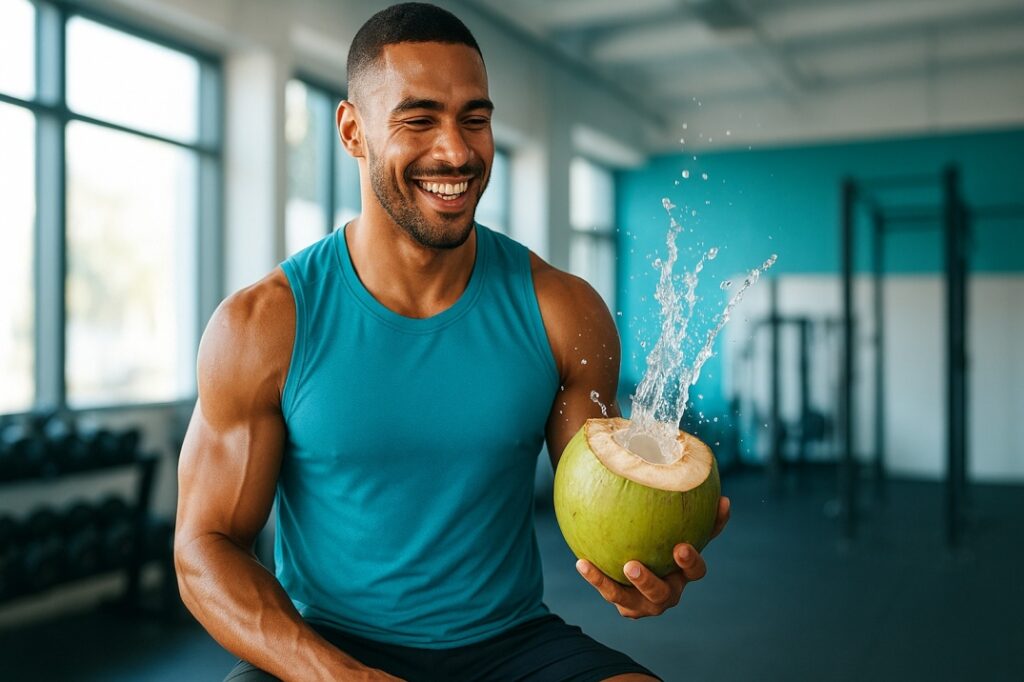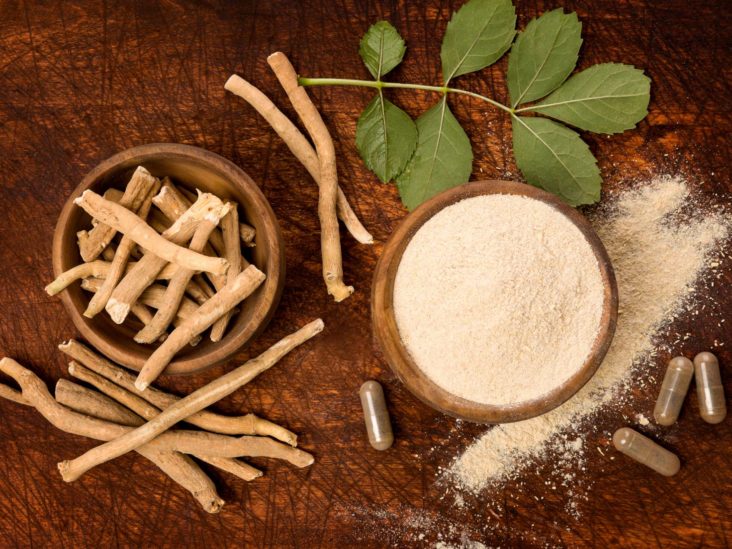Quick Facts for Athletes
- 470mg potassium per 8oz – more than a banana
- Natural electrolytes without artificial additives
- 45 calories – lower than most sports drinks
- Zero fat, zero cholesterol
- Best for: Post-workout recovery, hydration, low-intensity training
What Makes Coconut Water Different
Coconut water is the clear liquid found inside young coconuts – completely different from coconut milk, which is thick and white. For centuries, athletes in tropical regions have used this natural drink for hydration and recovery.
Nutritional Profile (8oz serving)
| Nutrient | Amount | % Daily Value |
|---|---|---|
| Calories | 45 | – |
| Potassium | 470mg | 10% |
| Sodium | 25mg | 1% |
| Magnesium | 15mg | 4% |
| Calcium | 57mg | 4% |
| Natural Sugars | 11g | – |
Performance Benefits for Athletes
1. Post-Workout Recovery
Research shows coconut water provides hydrating effects similar to carbohydrate-electrolyte sports drinks. The natural combination of potassium, sodium, and magnesium helps restore electrolyte balance after intense training sessions.
Best for:
- Moderate to intense workouts (60+ minutes)
- Hot weather training
- Endurance activities
2. Cardiovascular Health
Recent 2024 meta-analysis research confirms that increased potassium intake significantly reduces blood pressure. Studies show potassium-rich foods can reduce cardiovascular mortality risk.
Why it matters for athletes: Better cardiovascular health means improved oxygen delivery and endurance performance.
3. Natural Hydration
Unlike manufactured sports drinks, coconut water contains no artificial flavors or colors. Research indicates coconut water can be beneficial for rehydration after fluid losses due to sweat during exercise.
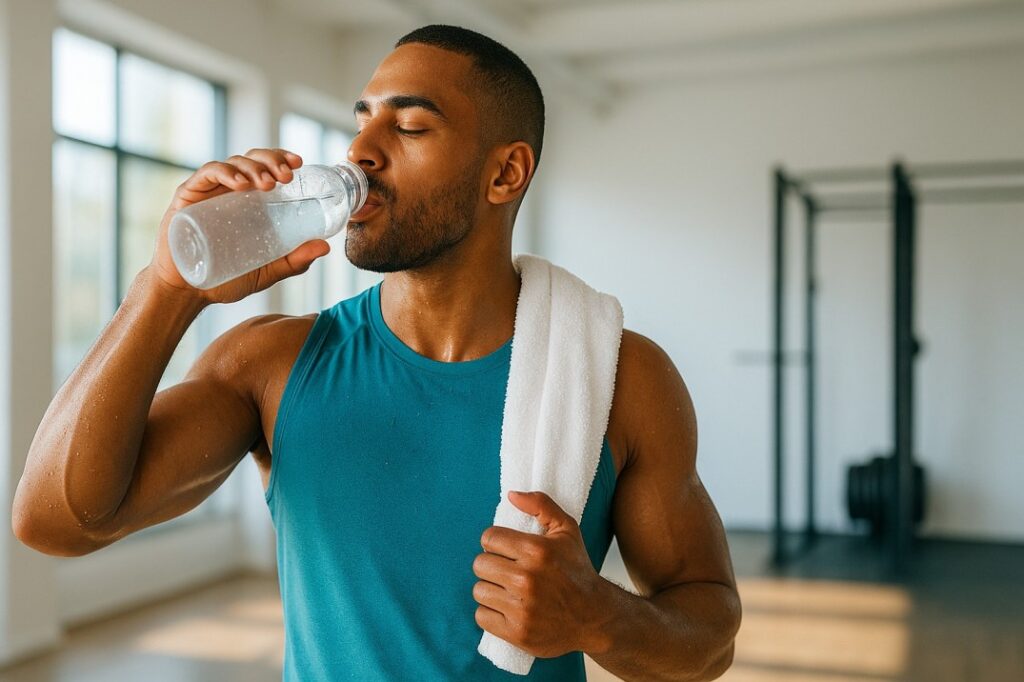
When to Use Coconut Water
✅ Ideal Times
- Post-workout: Within 30 minutes of training
- During illness: When experiencing dehydration
- Hot weather training: As a pre-hydration strategy
- Low-intensity activities: Walking, yoga, light cardio
⚠️ Consider Alternatives For
- High-intensity training (90+ minutes): May need additional carbohydrates
- Strength training: Regular water usually sufficient
- Competition: Stick with tested hydration strategies
Fitness-Specific Benefits
Weight Management
At 45 calories per cup, coconut water is significantly lower in calories than:
- Orange juice: 110 calories
- Sports drinks: 50-80 calories
- Soda: 140+ calories
This makes it an excellent choice for athletes managing body composition while maintaining hydration.
Muscle Function
The magnesium content supports proper muscle contraction and helps prevent cramping during extended training sessions.
Recovery Enhancement
The potassium content (470mg per 8oz) exceeds that of a medium banana (420mg), making it efficient for post-exercise potassium replenishment.
Comparison: Coconut Water vs Sports Drinks
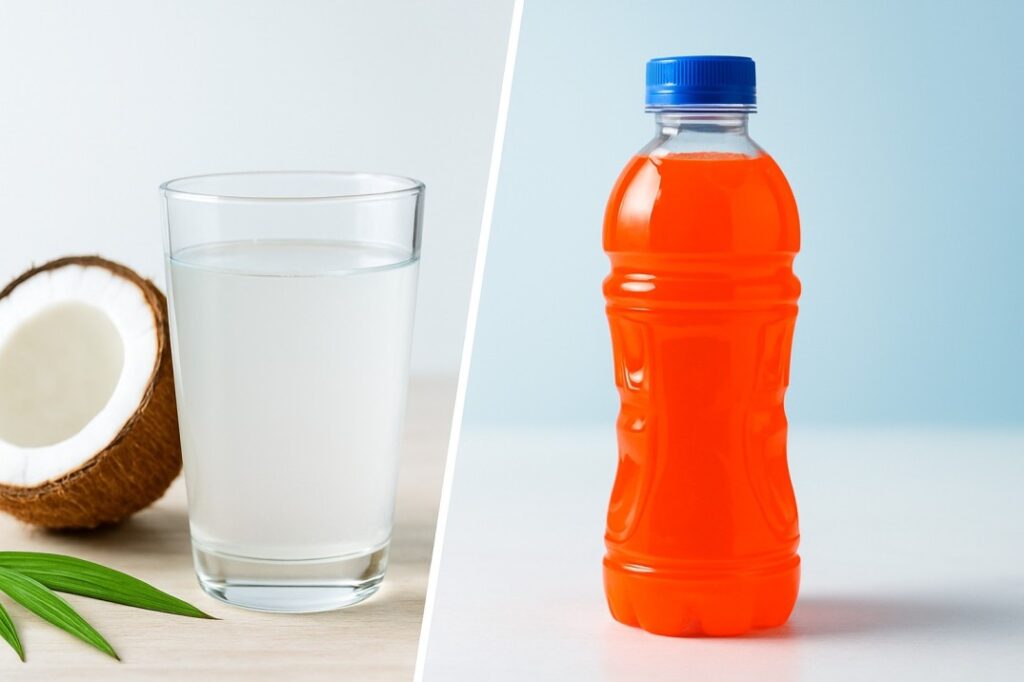
| Factor | Coconut Water | Traditional Sports Drink |
|---|---|---|
| Potassium | 470mg | 25-50mg |
| Sodium | 25mg | 100-200mg |
| Artificial ingredients | None | Colors, flavors, preservatives |
| Sugar source | Natural | Added sugars |
| Best for | Recovery, general hydration | High-intensity, long-duration |
The Verdict: Studies show mixed results when comparing coconut water to sports drinks, with no significant difference in rehydration for most scenarios.
Important Considerations for Athletes
Who Should Be Cautious
- Kidney issues: High potassium content may be problematic for those with renal failure
- Medication interactions: Some blood pressure medications affect potassium levels
- Budget concerns: Generally more expensive than water or homemade alternatives
Maximizing Benefits
- Timing matters: Best consumed within 2 hours post-workout
- Pair with protein: Add a protein source for complete recovery
- Choose unflavored: Avoid varieties with added sugars
- Listen to your body: Monitor how you feel during and after consumption
The Bottom Line for Fitness Enthusiasts
Coconut water serves as an excellent natural alternative to manufactured sports drinks, particularly for moderate-intensity training and recovery. Evidence shows that increasing potassium intake significantly reduces blood pressure in adults, making it beneficial beyond just hydration.
Best practices:
- Use for workouts lasting 45-90 minutes
- Excellent for hot weather training
- Great for general daily hydration
- Consider your individual needs and budget
- Always prioritize water as your primary hydration source
Remember: No single drink is perfect for every situation. Coconut water is a valuable tool in your hydration toolkit, but your individual needs, training intensity, and goals should guide your choices.
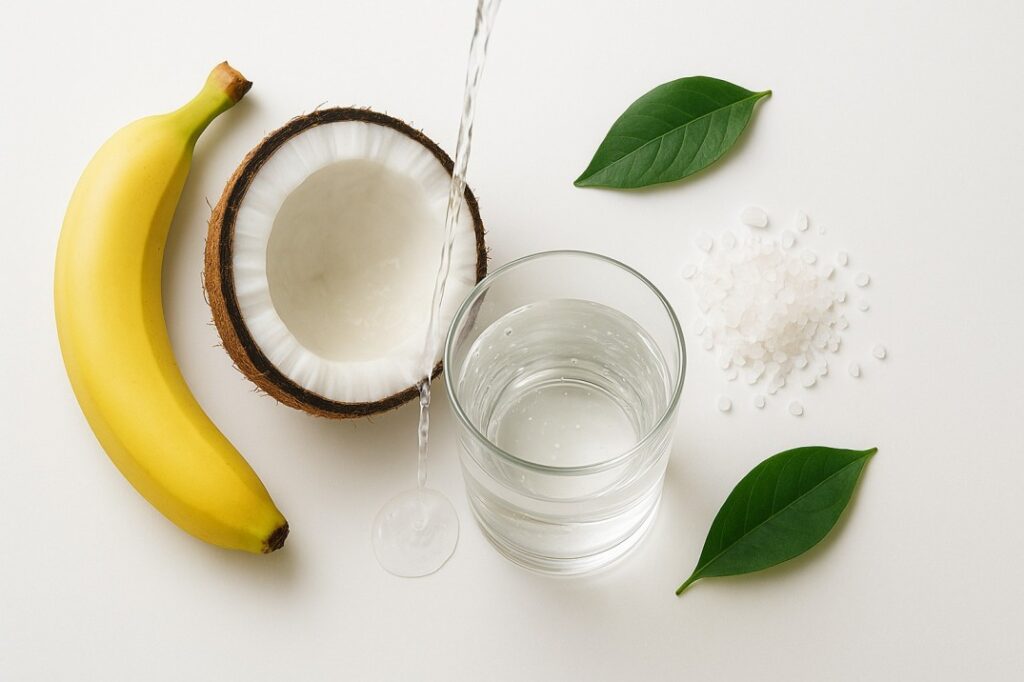
Sources: Journal of the International Society of Sports Nutrition, Mayo Clinic, American Heart Association, World Health Organization, Clinical Kidney Journal 2025
